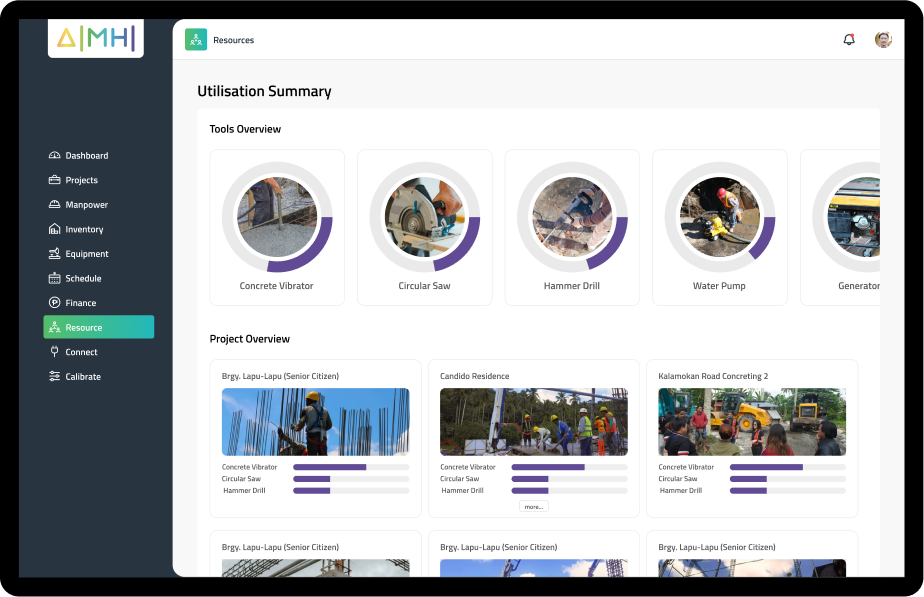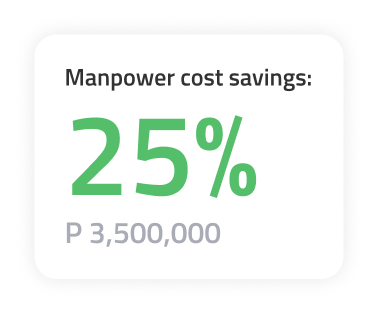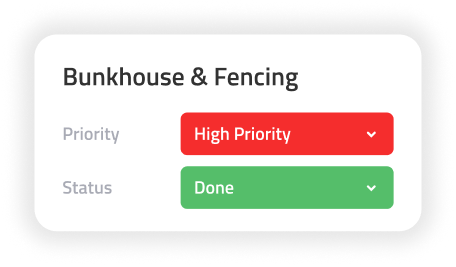
THE UNEXPECTED SURGE in oil prices due to a geopolitical crisis or the widespread nature of the economic decline caused by the COVID-19 pandemic in 2020 caused an economic shock. Rising inflation rates and negative gross domestic product (GDP) are leading people to worry about another recession. Everything from groceries to shoes is more expensive, and workers may have less job security. This global epidemic raises costs across the economy, certainly having a great recession impact on construction industry.
There is no one definitive sign that a recession is occurring, although it is a rule of thumb that when two consecutive quarters have a decline in GDP, it signifies a recession. This led the National Bureau of Economic Research (NBER) to designate that a recession occurred in April 2020 despite the two-month downturn after much of the U.S. economy shut down at the start of the COVID-19 pandemic.
In the latest International Monetary Fund (IMF) forecast, global project growth will remain unchanged in 2022 at 3.2 percent and slow to 2.7 percent in 2023, which is 0.2 percentage points lower than the July forecast. There are three key reasons why we’re experiencing an economic downturn. The Russian invasion of Ukraine, a cost-of-living crisis caused by persistent and broadening inflation pressures, and the slowdown in China. According to the IMF, these key factors involve three of the largest economies — the United States, the European Union, and China – which will continue to stall.
The construction industry is no stranger to what is happening. In 2009, the US experienced the longest economic downturn since World War II. The Great Recession started in December 2007 and ended in June 2009. Beyond its duration, the great recession impact was notably severe in several aspects. In 2012, it was revealed that the construction industry was one of the hardest-hit sectors during the recession. It caused project discontinuation and slowing of existing projects, causing a domino effect that affected other industries dependent on it.
You can never really predict the nature and course of a recession. And over a decade, it is important to know that there are many ways that you can recession-proof your construction company when the economy goes south.
Here are 3 takeaways from the Great Recession Impact on Construction Industry to set your business on the right track:
1. CUTTING EXCESSIVE COSTS
During a business’s trying times, major decisions must be made. Priorities need to be sorted out, risks must be taken, and expenses must be kept to a minimum. For this reason, many businesses that suffered in the Great Recession had to compromise and were left with no choice but to cut costs. Materials, labor, interest, and taxes; contractor, engineering, and architectural fees— these are among the many costs involved in construction that need to be reconsidered or reprioritized.
Among these, labor appears to be one of the top contributors to expenses incurred by construction companies and has been severely impacted during the downturn. The recession led to an extensive loss of employment and an overwhelming amount of tasks delegated to some who were already overworked. Laying off workers is difficult, let alone being stuck in the middle of an economic downturn where you are prompted to make really hard decisions and resort to extreme measures such as retrenchment.
Cutting costs and setting priorities in the construction industry are vital and more important now than ever. One of the features of the construction industry is the long length of its production period, which makes it prone to massive unemployment. Construction management software helps efficiently organize workloads and eliminates the risk of redundant hiring that leads to mass termination when times get tough. It allows a construction company to ensure an increased profit in other ways, such as becoming more efficient and productive. This helps business owners, property developers, and huge builders meet project demands even during an economic downturn.
2. DESIGN ADVANCED WORK PLAN
Preparation is the key to success. Regardless of how unpredictable the course of the economy or the business gets, thinking and planning always get you one step ahead in the game. However, that was not the case when the great recession happened over a decade ago. At the peak of a booming real estate industry, the risky Wall Street behavior of reselling a variety of different mortgages, some with poor quality, created a domino-like collapse of the housing market and became the main reason why the financial crisis was so widespread.
According to Neel Kashkari of the Federal Reserve Bank of Minneapolis, they tried to target their program to help homeowners having real estate problems. Their work plan failed when they were selective on who to help during the crisis. The great recession could’ve been avoided when the designed programs helped workers and small businesses avoid the worst economic outcomes.
Taking care of backlogs helps clear your headspace, enabling you to map out possibilities and a contingency plan with reasonable solutions to help you through a crisis as huge as a recession. Before moving on to another task, checking for pending backlogs that need to be ticked off your to-do list is important. Backed with digital features, construction management software helps you work faster and more efficiently, making it easier to clear out backlogs and progress faster with your tasks and onward with your next projects.
Not letting limited manpower and scarce resources get in the way of operating a business regardless of size, profit management software is essential in improving the management and operation of your construction projects.
3. ESTABLISHING A RELIABLE SYSTEM
Fast-paced thinking is required especially in times when critical and urgent responses are needed. We cannot foresee global challenges hitting the industry, but we can organize a strategy to brace for the impact and see how we can reduce risks. Innovative digital solutions from reliable management software help teams speed up operations and increase their productivity in accomplishing more tasks at the end of the day. Maintaining a well-organized system, even amid adversity, empowers each team member and lessens their stress from overthinking or worrying about getting tasks done on time or the right way. With less stress comes more efficiency, leading to a successful job.
A reliable system helps a company stay afloat even in the shakiest of times. Streamlining of team processes and seamless delegation of tasks lead to an easier accomplishment of targets and end goals. Partnered with good communication and a collaborative effort from the team, construction management software helps you enforce your system with solutions that help organize construction management processes digitally. This provides easy access and user experience for the team to work collaboratively in an easy-to-navigate digitized space, ensuring a higher productivity rate and giving more opportunities to skilled workers.
Conclusion
The Great Recession in 2009 has dramatically affected many industries globally, with the construction industry not being an exception. Although there may be a common consensus that we are better now than we were a decade ago, looking back, we learn these three important takeaways to consider and keep in mind: cutting excessive costs, designing advanced work plans, and establishing a reliable system.
Cutting costs involves a lot of decision-making and reprioritizing, keeping expenses at a minimum. Preparation accounts for most businesses’ success and resilience after surviving a crisis. Using the past as a reference helps foresee potential problems and solutions by thinking forward. Lastly, getting help should not be something to shy away from. Having an effective system and using the right tools to get the job done faster and more efficiently gets you the results you need.
Essentially, a global crisis is difficult to prevent and will strike, without discernment, just like COVID-19. While some are comparing the new downturn with the 2009 recession, the majority of economists do not expect it to be as grim and predict that the global economy will rebound rapidly. 13 years later, the world leaders have rebounded, rebuilt, and, in many ways, made substantial changes toward a better future.
With the mission of driving digitalization in the construction industry and increasing profits for construction companies, using construction management software ensures you the right profit-increasing solutions that optimize cost, reduce risk, and increase profit. AIMHI’s construction decision support platform is designed to inform you about soaring costs and liabilities, allowing you to reduce risk and protect your budget. Whether you are an established construction company or a small startup business owner, AIMHI’s profit management software accurately predicts target profit at the project’s earliest stages and provides insights and recommended actions needed for better decision-making.
There is so much AI-powered technology can offer. The year 2022 is coming to an end, and as we enter a new year with a warning, make sure to have your own takeaways to recession-proof your construction company. Knowing more and understanding the economy is best to see how your business can stay afloat over the years.
Book a demo with us to learn more about how AIMHI can increase your profit by as much as 5 to 10 percent.









